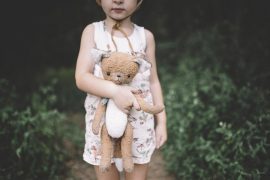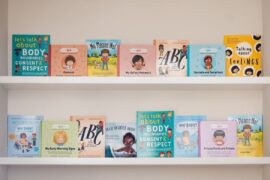P – Permission
There is a reason our children let it out on us: they trust us. They feel safe sharing their feelings with us. This is a blessing in disguise, mummies… Who would they turn to after all? It’s not always pleasant, but see it as an honour if you look at it from a positive perspective. We are here as parents to guide them through life and help them navigate the strong emotions they are feeling. This insight, for me, has been a mindset shift that has made a huge difference in how I respond to my children.
Giving them permission to be a child makes everything manageable. Permission to feel. Permission to express. Permission to acknowledge that emotions are all part of growing up. Permission to learn how to regulate difficult emotions and make it part of the process of development.
The moment you allow them a safe space and time to feel and express their emotions, the sooner their tantrums subside.
The more mindful you are in relating to them without getting hurt or hurt the feelings of your child, the more you can observe how they can self-regulate their feelings and emotions as they come and go. Your child will learn to understand these feelings as they learn to self-regulate. Simply noticing and helping them name the emotions can go a long way to helping them manage the emotions that arise.
Instead of perceiving tantrums and meltdowns as a disaster, should we approach it as an opportunity for us to teach our children to identify and express their feelings? Yes. This will empower them to cope with their emotions when they feel overwhelmed. When they become more aware of their inner feelings and emotions and can observe them, strong emotions become more manageable, and they will be better equipped to respond rather than react.
I’ve benefitted a lot through embodying mindfulness while journeying through life.
Mindfulness is a sustainable practice in which by helping ourselves, we are also helping our children.
I realise that when I am a little less reactive, less neurotic, less triggered, and more grounded, I can foster a better relationship with my children and it has a ripple effect. Our children will gradually learn to respond to what they are experiencing rather than reacting to it.
I trust these strategies will encourage you to view things from a different perspective and that every situation is not entirely out of your hands. So, next time when you are caught off guard or triggered by a child’s meltdown in public, remember to use ‘TAP’ and stay calm when responding to their needs.
Ainee Cha is a mindfulness practitioner and a certified life coach. She coaches and mentors school-aged children, youths and women. She is passionate about providing support to your family’s mental and emotional wellbeing and wishes to share this foundation life skill that she has cultivated and curated to support you, your child, and your family.
She currently resides in Dunedin, New Zealand with her family and you can contact her at https://www.aineechalifecoaching.com/ and follow her on https://www.facebook.com/aineechalifecoaching/










